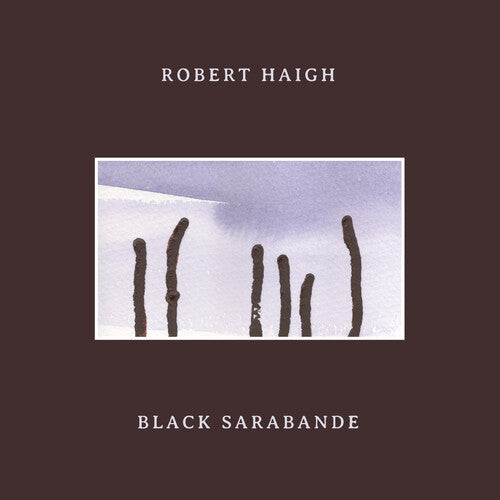Unseen Worlds
Robert Haigh - Black Sarabande
Robert Haigh - Black Sarabande
Usually ships within 1 to 2 weeks.
Couldn't load pickup availability
SKU:USEE29.2
Share
Black Sarabande expands upon pianist-composer Robert Haigh's beguiling debut for Unseen Worlds with a collection of intimate and evocative piano-led compositions. Black Sarabande expands upon pianist-composer Robert Haigh's beguiling debut for Unseen Worlds with a collection of intimate and evocative piano-led compositions. Haigh was born and raised in the 'pit village' of Worsbrough in South Yorkshire, England. His father, as most of his friends' fathers, was a miner, who worked at the local colliery. Etched into Haigh's work are formative memories of the early morning sounds of coal wagons being shunted on the tracks, distant trains passing, and walking rural paths skirting the barren industrial landscape. The album opens with the title track - a spacious, plaintive piano motif develops through a series of discordant variations before resolving. On 'Stranger On The Lake,' sweeping textures and found sounds lay the foundation for a two chord piano phrase evoking a sense of elegy. 'Wire Horses' is an atmospheric audio painting of open spaces and distant lights. 'Air Madeleine' uses variations in tempo and dynamics to craft the most seductively melodic track on the album. 'Arc Of Crows' improvises on a single major seventh chord, splintering droplets of notes as ghostly wisps of melodic sound slowly glide into view. 'Ghosts Of Blacker Dyke' is a melancholic evocation of Haigh's roots in England's industrial north - intermingling dissonant sounds of industry within a set of languid piano variations. 'Progressive Music' is constructed around a series of lightly dissonant arpeggiated piano chords which modulate through major and minor key changes before resolving at a wistful and enigmatic refrain. In 'The Secret Life of Air', a nocturnal, low piano line slowly weaves it's way through the close-miked ambience of the room, nearly halting as each note is allowed to form and reverberate into a blur with the next. The ambitious 'Painted Serpent' calmly begins with drone-like pads and builds with the introduction of counterpoint piano lines and an orchestral collage of sound underpinned by a deliberate bass motif. 'Broken Symmetry' and 'Lady Lazarus' highlight Haigh's gift for blurring the line between dissonance and harmony - opaque piano portraits of moonlight and shadows glancingly evoke the impressionistic palettes of Harold Budd, Debussy and Satie.



